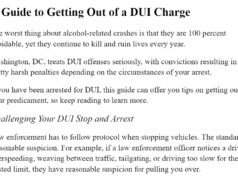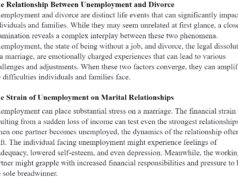SPONSORED CONTENT
There’s no question that marijuana use is on the rise in the United States, thanks to many states legalizing its use. In fact, there are rumors that it will be Federally legalized soon. Some of these rumors claim that the legalization of marijuana could happen as early as the end of the year. One of the reasons behind this potential shift is that the legalization of industrial hemp in 2018 caused mass confusion on the issue.
Simply put, many government authorities do not have the equipment to tell the difference between hemp plants and marijuana plants, which makes prosecution very difficult. Furthermore, the rise of deaths from illegally purchased marijuana vape cartridges has caused some to reconsider the ban of marijuana. This is because many people who live in states where marijuana is still illegal are turning to black market vape cartridges, which are causing injuries and illnesses.
For those whose lives have been affected by marijuana-related charges, many are hoping for a better future and are curious as to what will happen to weed-related charges if the Federal government decides to make marijuana legal. Does that mean past charges will be swept away and forgiven? Do people no longer have to serve their full sentences? “In states where marijuana was fully legalized, like California, in the city of San Francisco they are wiping clean the records of thousands of people with marijuana convictions without them even asking for the records to be cleared,” says Attorney Justie Nicol. “We are hoping that this will happen in more cities and states across the country as cannabis continues to become legalized.”
There are still a lot of questions on the issue. If the Federal government decides to legalize marijuana, people who have past marijuana-related charges or sentences—as well as those who are currently serving jail time because of them—will not be expunged of their records or set free. This is because the United States government does not relax sentences for crimes if any laws of said crime somehow change or are relaxed in the future. This is called “retroactive ameliorative relief,” which is not allowed in the US.
It may be possible, however, for specific individuals to file an appeal of their sentence or seek to have their records expunged, which is happening in California where marijuana was legalized in 2016. Proposition 64 may also help people expunge their marijuana records. Under this measure, it is possible to petition to have a conviction of low-level possession of marijuana expunged. This is only possible, however, if the person is not considered a risk to public safety.
A presidential pardon may also happen to many if marijuana becomes Federally legal. This would likely be for anyone serving crimes with possession of less than an ounce, along with other low-level marijuana crimes. Furthermore, Democratic Senator Corey Booker (D-NJ) introduced The Marijuana Justice Act in 2017 and again in 2019, which would remove marijuana from the Federal controlled substances list. This act would also help people expunge their records if their charges were for low-level crimes. Time will tell if this act will become resurrected.














